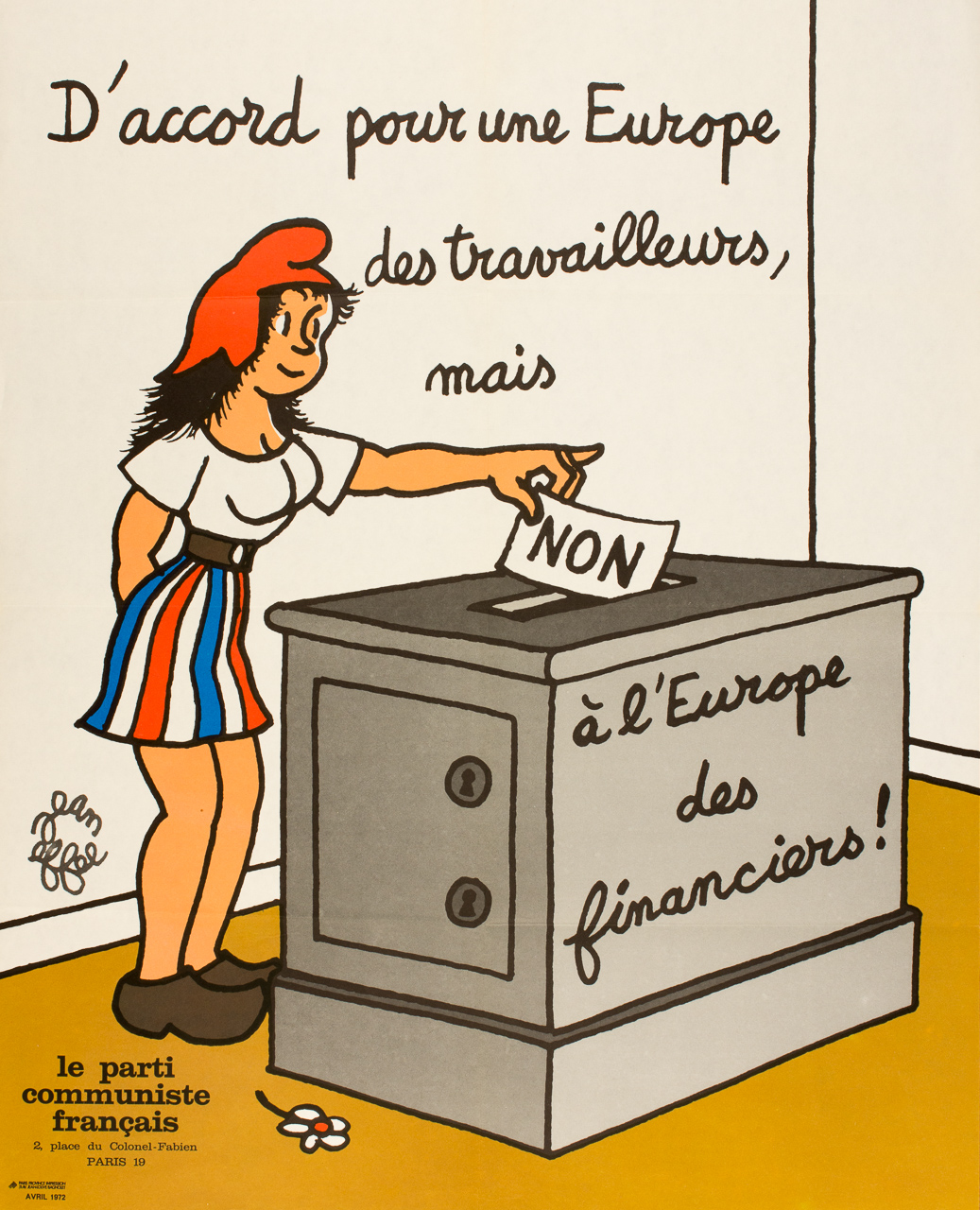Dr Aurelien Mondon discusses how a political poster from 1972 continues to have meaning and relevance today.
In 1972, French President Georges Pompidou organised a referendum to seek approval for his European strategy. French voters were asked whether the United Kingdom, Ireland, Norway and Denmark should be allowed to enter what was then known as the European Community.
This poster, printed at the height of the campaign, was created by the French Communist Party, which at the time remained one of the major political players in France. In the 1969 presidential election, their candidate Jacques Duclos had finished third. The message on the poster is clear and still resonates today in a context where distrust of politicians, the elite and the EU as a proxy is widespread: Yes to a Europe for workers, but no to a Europe for businessmen. The poster shows Marianne, the symbol of France, placing a No vote in the ballot box, as the Communist Party felt this enlargement would not benefit workers. At the time, it was the only major party to call for a No vote and this translated into a victory of the Yes with over two-thirds of the vote.
The rational for the Communist party was very different to the most popular contemporary Eurosceptic movements which have gained traction in recent years. Rather than based on a narrow and reactionary nationalism, which we can witness in parties such as UKIP or the Front National, the Communist Party did not argue against a European project as such, but rather against what was already becoming an increasingly economically-tilted European project, at the expense of more social aspects. We can witness here already the seeds of discontentment which have since led to a number of democratic setbacks and backlashes against what is commonly seen today as a neoliberal project.
A similar battle took place for the 2005 referendum on the European Constitution in France, where again, mainstream parties rallied behind the Yes vote, while the Communists and other left-wing parties supported the No vote for reasons similar to those pushed for in 1972. Nationalist parties also supported the No vote, but because they opposed Europe altogether. As the EU project appeared increasingly disconnected from the day-to-day lives of French people, and elitist in its nature, it should have been no surprise that the No vote won with over 55%.
Yet the EU project rolled on, failing to address many of the very real concerns various people across Europe raised, not about the ideal of European cooperation, but about its ideological and elitist bent. As the left-wing opposition weakened and failed to push its message, the opposition to the EU was taken up by the far right, with much more sordid objectives, and against a pro-EU elite ever more out of touch, with consequences we are only just starting to grapple as the Brexit process unravels and the far right gains traction across the continent.
